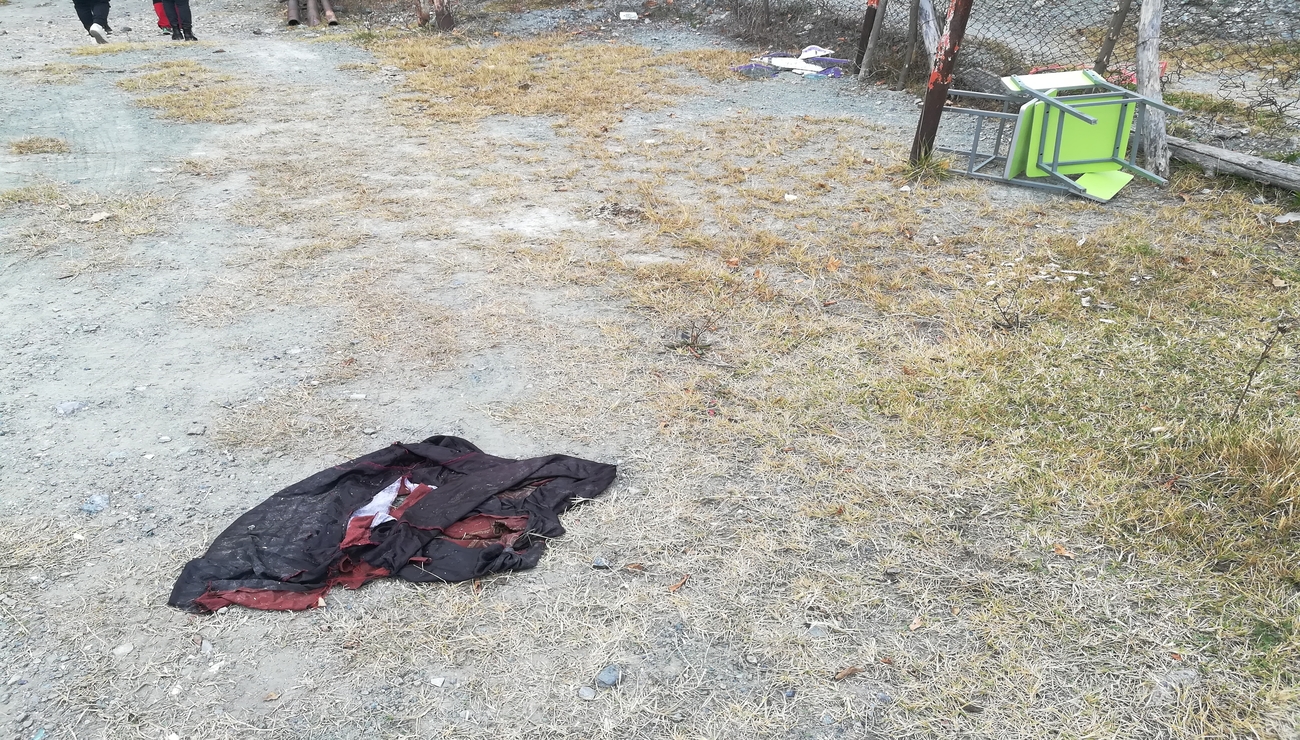





As a result of the 44-day war unleashed by Azerbaijan in 2020, some territories of Nagorno-Karabakh Republic had fallen under Azerbaijani control, and the only route of connection and communication between Armenia (and hence the outside world) and Nagorno-Karabakh is the Lachin corridor.
The territories fallen under Azerbaijani control have been ethnically cleansed as a result of the hostilities. A large number of extrajudicial killings are on record mainly of civilian residents who remained in their homes, mostly elderly and people with disabilities, including women. Following the signature of the tripartite statement on the end of hostilities on 9 November 2020, the Government of Azerbaijan continues its policy of ethnic cleansing of the Armenian population of Nagorno-Karabakh and terrorizes them with various methods. This includes but is not limited to psychological pressure and intimidation, the creation of a humanitarian disaster in Nagorno-Karabakh, as well as violating the ceasefire statement and constantly shelling civilian communities.
Unprovoked violence by the Azerbaijani side has become the norm in the aftermath of the 44-day war. After making the ceasefire statement, three civilians were deliberately killed (executed) and more than ten wounded, and the majority of them were engaged in agricultural works. Some of those incidents occurred in the presence of the Russian peacekeepers.
The situation has become even more alarming since February 2022. On daily basis the Azerbaijani armed forces use loudspeakers in line of contact with Nagorno-Karabakh in the immediate vicinity of Armenian villages, calling the residents to leave their communities “as they are living in the territory of Azerbaijan and have to obey the Azerbaijani instructions.” The demands to Armenians to abandon their homes are accompanied by threats to use force in the case of disobedience to those “orders.” Such actions of the Azerbaijani armed forces were reported in villages Khramort, Nakhijevanik, Nor Shen, and Taghavard. In addition, on 11 March, the Facebook page of the national assembly of Nagorno-Karabakh was hacked, and an announcement was posted for the residents of the Askeran region to leave their homes within 168 hours.
Regular shooting from different caliber weapons, including mortars, were reported in villages in close vicinity with the line of contact, including Khramort, Khnapat, Nakhijevanik, Nor Shen, Karmir Shuka, Khnushinak, and Parukh.
Civilians were also wounded. On 15 February 2022, the Azerbaijani armed forces fired at a resident of Khnapat village carrying out agricultural work in a field. On 10 March 2022, Suren Baghdasaryan, the resident of Khramort village, was injured while working in his garden as a result of one of those mortar attacks. Due to the intense shelling and real threat, women and children were evacuated from Khramort village on the same day.
The Azerbaijani Government also employs various tactics to destroy essential infrastructure necessary for the everyday life of the residents of Nagorno-Karabakh. On 8 March 2022, at night, the only natural gas pipeline to Nagorno-Karabakh from Armenia was damaged in the territory under the Azerbaijani control, and the Azerbaijani side has hampered access to the Russian peacekeepers and repair workers to the sight to repair the pipeline. Negotiations with the involvement of the Russian peacekeepers have had no results for more than 10 days.
The gas pipeline was repaired only by 19 March 2022 restoring the gas supply to the Nagorno-Karabakh. Two days later, however, the gas supply was interrupted by Azerbaijani authorities. According to the Human Rights Defenders of Armenia and Nagorno-Karabakh reliable facts exist that during the reconstruction works or under their guise, the Azerbaijani authorities had installed a valve on the gas pipeline suggesting that they can stop gas supply any moment.
As a result about 100,000 inhabitants of Nagorno-Karabakh have been completely deprived of natural gas supply, including heating and hot water in winter (cold) period with heavy snow and temperature below zero degrees of Celsius. Schools, kindergartens, hospitals and other essential facilities and infrastructure remain without gas supply, hence without heating and unable to cook. Lack of gas supply also affected the capacity to bake bread; hence, there is a shortage of that as well.
These activities of the Azerbaijani Government are part of a systematic state policy of Armenophobia and hatred towards the Armenians that has been acknowledged and condemned by international institutions, including the ECRI, ICJ, the European Parliament, and other bodies.
Aggression and genocides happen and proliferate throughout the world as the aggressors and authoritarian regimes act in complete impunity and without due condemnation from the international human rights organizations, from the states that govern with values of democracy and human rights.
We urge the international community and international human rights agencies to take all necessary steps to protect the human rights of the population of Nagorno-Karabakh Republic, to ensure that Azerbaijan puts an end to the policy of human rights violations and prevent humanitarian crisis as well as to promote the presence of international organizations to support the peace and ensure the safety of the population of Nagorno-Karabakh.
Protection of Rights without Borders NGO
Transparency International Anticorruption Center
Helsinki Citizen’s Assembly Vanadzor
Open Society Foundations-Armenia
Law Development and Protection Foundation
Analytical Centre on Globalization and Regional Cooperation
International Law and Policy Center
Public Journalism Club NGO
“For Equal Rights” Educational center NGO
Article 3 Human Rights Club
Centre for community mobilization and support NGO
Human Rights Research Center NGO
Peace Dialogue NGO